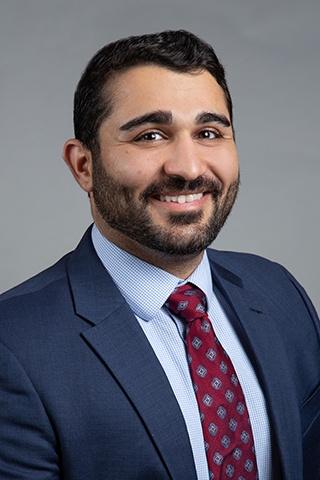Marie Curie famously wrote, “Be less curious about people and more curious about ideas.”
But, people come up with the ideas and these ideas may be about people, so what did she truly mean by this? I think she wrote these words to encompass that ideas or theories draw our curiosity at first, and should be the foundation of any new research. But, she did not delineate that curiosity about people is what drives scholarly investigation. In my case, this has held to be true.
Several months ago, I wanted to apply for the Paul Ambrose Scholars Program because of my fervent desire to grow as a health care researcher in the Duke community. I approached a Duke family physician, Tiffany Covas, M.D., MPH, and a Duke Physician Assistant Program faculty member and population health researcher, Christine Everett, Ph.D., MPH, PA-C, with adamant intentions and a desire for growth, held in tandem with a lack of knowledge on a variety of research topics and areas. This resulted in an understanding of my own weaknesses as a future clinician and researcher. I only knew what I did not know. In this case, this was more than enough to allow the people — who my curiosity had drawn me toward to select as my mentors and guides — to guide me in forging a new tool for my clinician toolkit.
I knew I did not have much experience with members of the LGBTQ+ population. In addition, I knew I wanted to be as effective as possible for an already marginalized patient population. With that, Drs. Covas and Everett quickly collaborated to bring to life a study that they had been working through the past several months. This study has been further developed into its current state: a qualitative study that will assess ways in which sexual orientation, gender identity, and sexual behavior questions are asked of members of the LGBTQ+ community.
This study will allow future providers to better recognize how we should approach collecting this information in order to enhance the provision of appropriate STI testing, contraceptive education, and sexual education. With this new idea in place and a research plan to make it all happen, I applied for the Paul Ambrose Scholars Program with their support and became one of the few chosen.
My passion is what sparked my initial interest. From there, the people were what drew my curiosity, not the idea.
The people are members of the LGBTQ+ community, whose background and health care perspectives I have come to and will continue to learn about over the coming months. The people are Drs. Covas and Everett, supportive and nurturing mentors eager to train the next generation. The people are fellow future health care providers like Rheaya Willis, a third-year medical student collaborating and actively advocating for the LGBTQ+ community for this study. The people are what I was curious about, and the idea came subsequently.
Marie Curie’s statement may hold true in the field of physics and chemistry, but people are at the core of medicine and population health. Being more curious about people translates into being a good clinician and researcher, which is more than I can ever dream of being.
Student Research Opportunities
Learn more about student research opportunities in the Department of Family Medicine and Community Health.
Kiarash Rahmanian is a first-year student with the Duke Physician Assistant Program. Email kiarash.rahmanian@duke.edu with questions.
Editor’s note: Duke Physician Assistant Program students blog regularly. Blogs represent the opinion of the author, not the Duke Physician Assistant Program, the Department of Family Medicine and Community Health, or Duke University.
